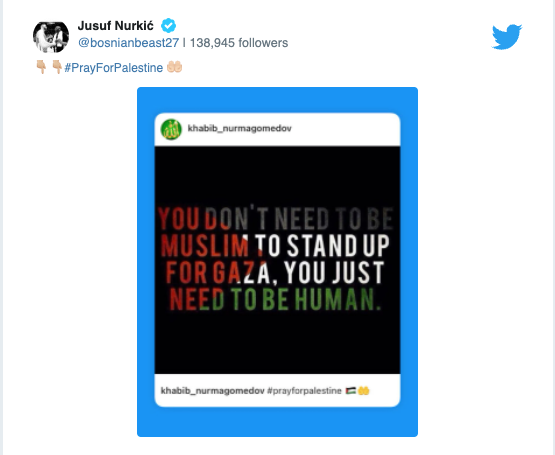NBA Players Who Support Palestine
The Palestinian-Israeli conflict is a long and complicated one. Starting in 1948, the conflict continues to rage on to this day. With Palestinians losing nearly 90% of their land and sovereignty with the creation of Israel, more-and-more individuals and Americans are beginning to support the Palestinian cause.
And no where is this more seen in the world of sports than in the NBA. With many NBA players supporting the Black Live Matter movement, even more are beginning to support the Palestinians and their cause for statehood and sovereignty.
Below, we are going to review and discuss the NBA players who support Palestine and the steps they have taken to further the Palestinian cause.
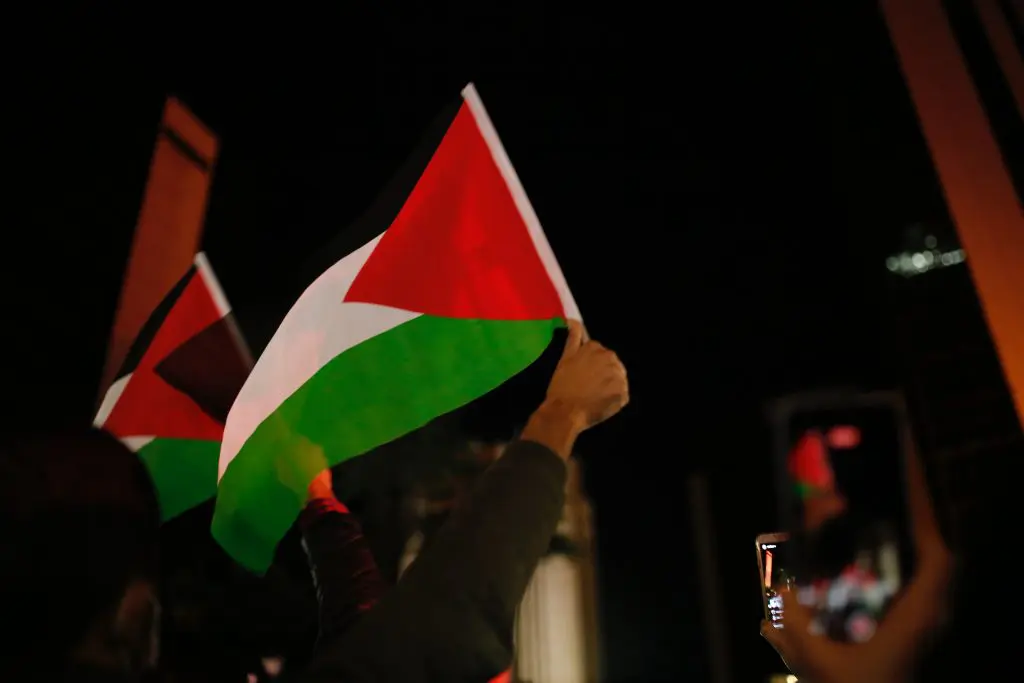
Disclaimer
Please note, the Palestinian-Israeli conflict is one of the most contentious and controversially discussed international conflicts. With adamant supporters on both sides, the conflict is one of the most difficult to discuss.
However, as a website focused on sports, wellness, and healthy living, we aim to provide an unbiased, factual account on every article we write.
As such, our account on the NBA players who support Palestine is deeply rooted in fact and written history.
We take no judgment and make no stands on the issue and will leave that to our readers. However, if you are looking to see just which NBA players have supported Palestine and the Palestinian cause, the look no further than this article.
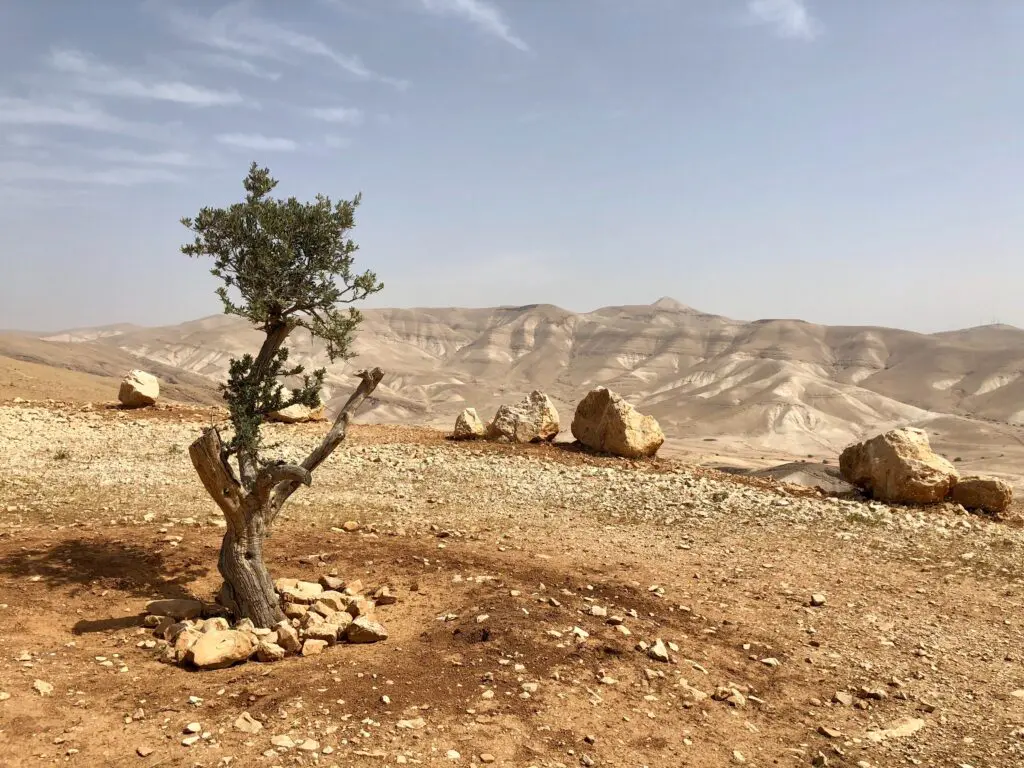
Quick History of the Palestinian-Israeli Conflict
As stated above, the Palestine and Israel conflict is one of the most complex international conflicts. With both Palestinians and Israelis staking claim on the land, the conflict has been ongoing for over a century.
However, as Dr. Serpil Atamaz, a professor in the Department of History and Director of the Middle East and Islamic Studies Program at California State University, Sacramento stated:
“One side has a state, the other one does not. It’s not just about land, but it’s about having the right to self-determination. This is not a conflict between Jews and Muslims or Jews or Arabs. It doesn’t go back to the biblical times or the Old Testament at all. This is relatively a modern conflict.”
The true origins of the conflict can be traced back to the late 19th century. With the region being ruled by the Ottoman Turkish Empire, Jews, Muslims, and Christians lived in the region in relative harmony.
However, as Professor Atamaz would continue to state, “What changed in the late 19th and early 20th century? We have a Jewish nation. We have British colonialism. That kind of changed the dynamics in the region.”
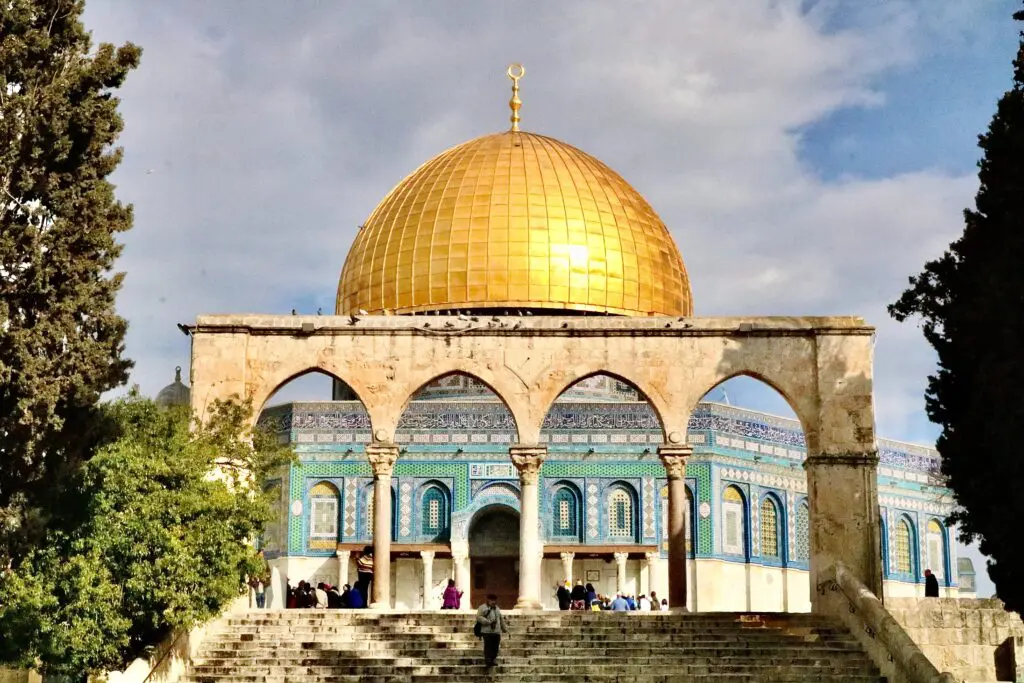
And although the Ottoman Empire was able to house all three major religions, its fall after the Allied Powers defeated the Central Powers in World War I left a void in the region, one that placed Great Britain as the administrator of the land.
However, the British Mandate over Palestine was originally meant to only last a couple of years. Rather, the British government had given assurances to Zionist organizations about creating a Jewish state in Palestine.
And although the original Zionists wanted the state of Palestine as their own, the core issue and problem was that the state they wanted and to call their own was inhabited by an Arab majority who had been there for more than a thousand years.
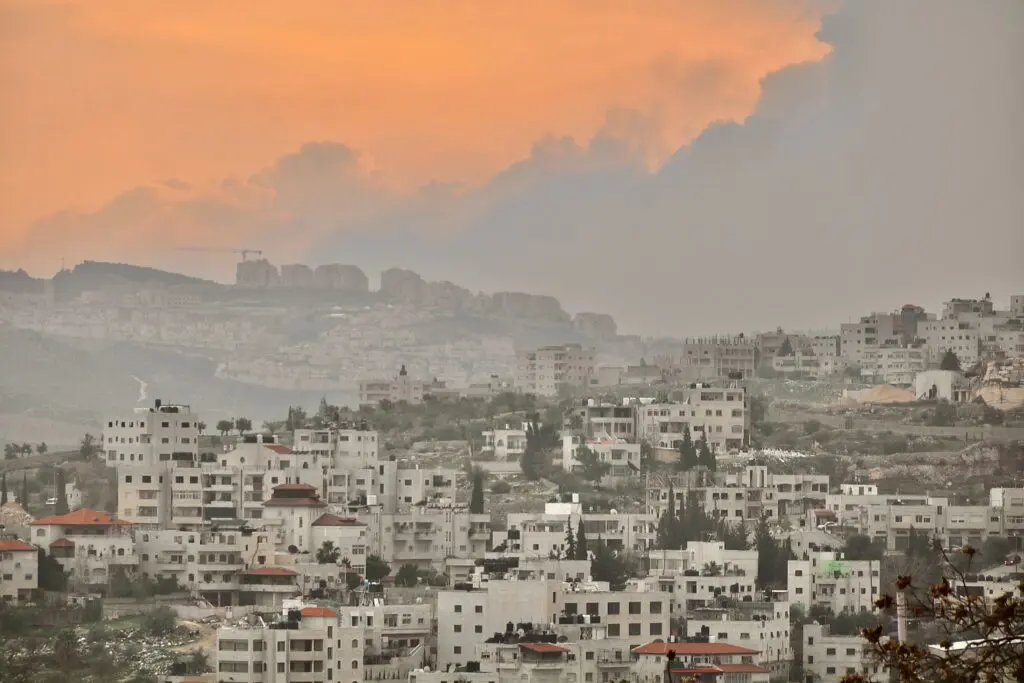
And although Great Britain supported the idea of a Jewish national home in Palestine, they had made another promise to the Arabs living in the region. They said Palestine was going to be a part of an independent Arab state that was going to be established after the war was over.
However, under the British rule, there was Jewish migration to Palestine. The British rule allowed the Jews to come in, migrate to Palestine, settle in Palestine, and to purchase land in Palestine in spite of all the Arab resistance and opposition to it.
This all came to a head when the United Nations decided to form a Special Committee On Palestine – UNSCOP. The plan by the United Nations was to partition the state into a respective Jewish and Palestinian state.
This plan was not accepted by Arabs in Palestine because even though only a third of the population was Jewish and the Jews owned only 10% of the land in Palestine, they were given 55% of the territory. The Palestinians ended up with 45%, even though they were the majority at the time.
In 1948, Britain gave up its mandate of the territory, leaving the Jews and Arabs in the state to, essentially, fight it out.
After the British withdrew, David Ben-Gurion, the first prime minister of Israel, declared the establishment of Israel as a new state in Palestine, which led to the first Arab-Israeli war because the neighboring Arab countries declared war on Israel to stop it from consolidating itself.
These wars, and the overall conflict, would continue for over a half-a-century, with Palestinians insisting on statehood on land that their ancestors were originally inhabiting and the newly formed Jewish state of Israel.
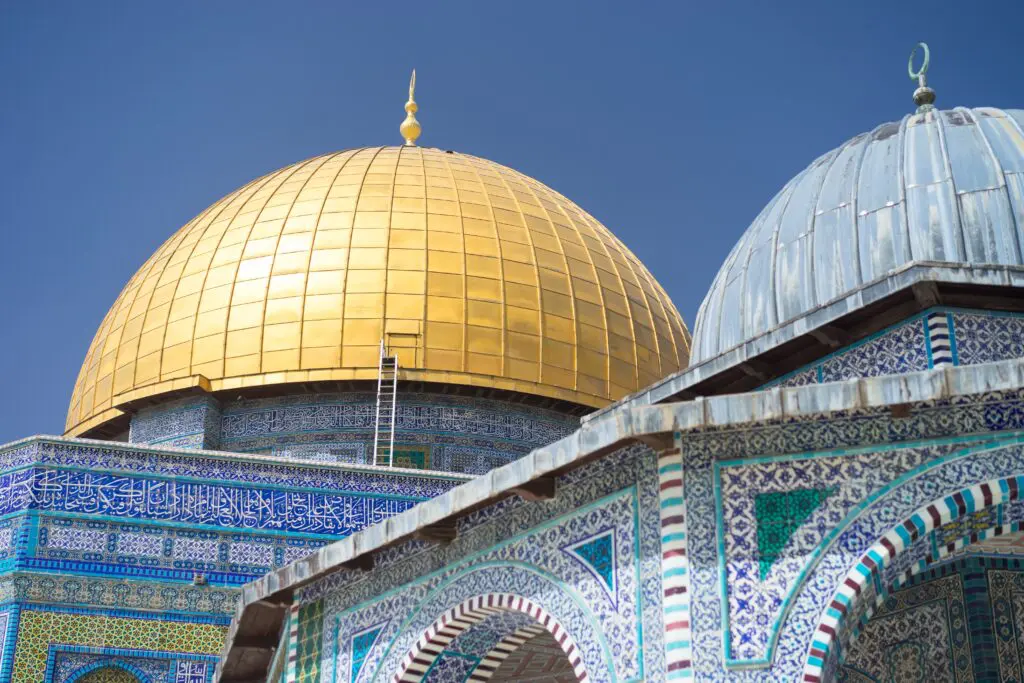
Why do NBA Players Support Palestine?
While, admittedly, NBA players are paid handsomely for their work on the court, players within the league are not afraid, nor held back by the league, in expressing their opinions and differing points of view.
Rather, most NBA players are willing to express their opinions and thoughts on recent political, social, and charitable topics which they feel strongly on.
These players, with massive social media following on Instagram, Facebook, and Twitter, are better able to control their own narrative and provide their own points of view, often without the help of assistants and public relations specialists.
And for these players, many of whom identify with and come from difficult childhoods, the issue of Palestinian rights is one close to their heart. For these players, an injustice anywhere is an affront to justice everywhere and they are not shy in expressing their opinions.
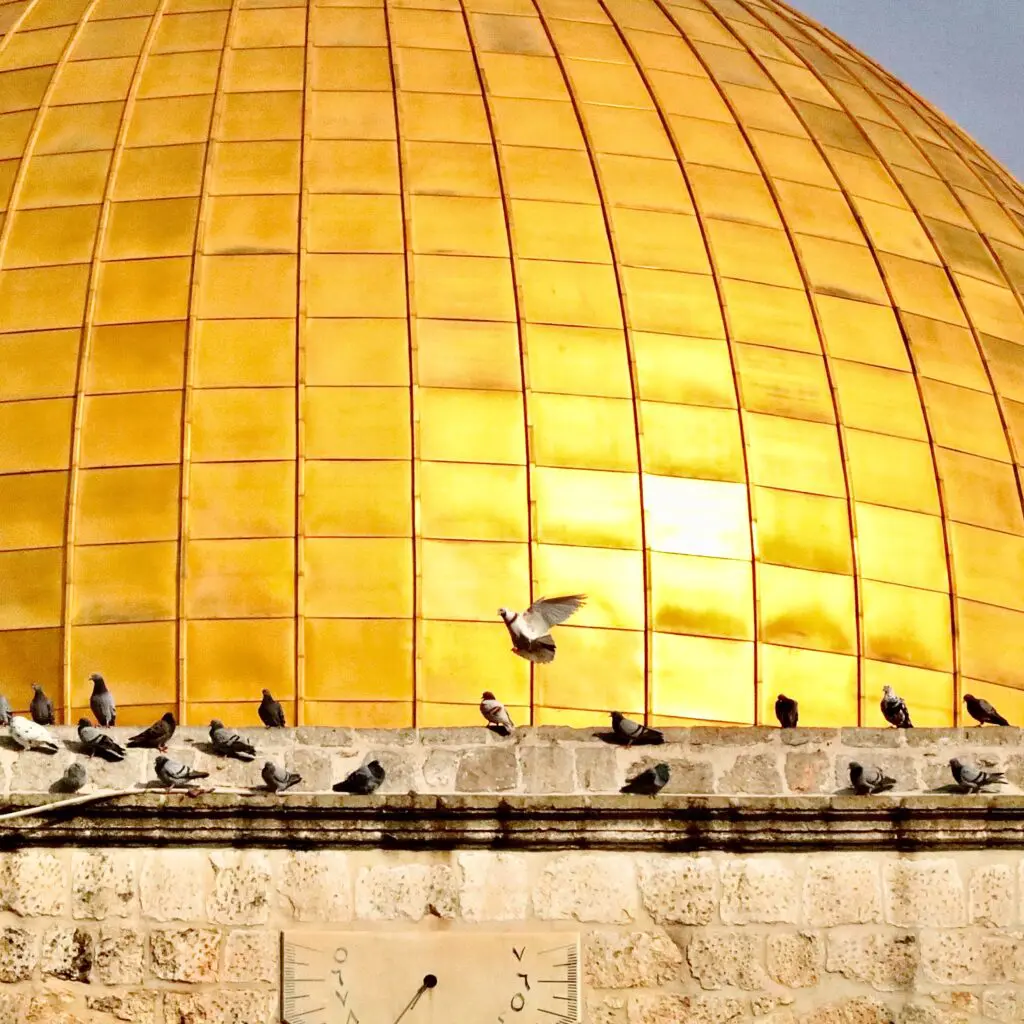
List of NBA Players Who Support Palestine
As stated above, the number of NBA players who wholly and fully support Palestine and the Palestinian cause is growing. These players have made public comments in support of Palestine and the Palestinian cause and have not shied away from expressing their opinions.
- Kyrie Irving – Kyrie Irving, one of the most prolific basketball players and a recent convert to Islam, has been well-known for his stances on social and human rights issues. And with the latest escalations in the Palestinian-Israeli conflict, Irving didn’t shy away from making his opinions known, stating:
“I’m not gonna lie to you guys, a lot of stuff is going on in this world, and basketball is just not the most important thing to me right now. There’s a lot of stuff going on overseas, all my people, they’re still in bondage all across the world. And there’s a lot of dehumanization going on. So, I apologize if I’m not going to be focused on your questions. It’s just too much going on in the world for me just be talking about basketball.
It’s not just in Palestine. It’s not just in Israel. It’s all over the world, man. And I feel it. I’m very compassionate to all races, all cultures, and to see a lot of different people being discriminated upon or against based on their religion, color their skin, what they believe in…. we all say ‘we’re human beings, and we care and we’re compassionate.’ But what are you doing to help?”
- Dwight Howard – Dwight Howard may be better known for his superman-like abilities on the court but when violence set off in the Middle East in 2014, Dwight Howard, via Twitter, expressed his sympathy and support for the cause and the Palestinian people.
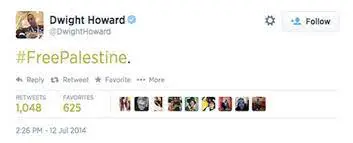
- Damian Lillard – the Portland Trail Blazers star, also posted on social media expressing his solidarity with the Palestinian people. Posting a “Solidarity with Palestine” poster, he has been one of the most active voices in social justice issues and causes.
- Jusuf Nurkić – Jusuf Nurkić, nicknamed “the Bosnian Beast”, and a fellow Portland Trail Blazers player posted on Twitter in solidarity with the Palestinian people. He has been vocal about his support for Palestine and human rights worldwide and captioned his Twitter image with the hashtag PrayforPalestine.
